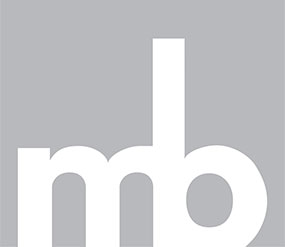On December 14, the Supreme Court granted Certiorari in TC Heartland LLC v. Kraft Foods Group Brands LLC. 821 F.3d 1338 (Fed. Cir. 2016), cert. granted, 2016 WL 4944616 (U.S. December 14, 2016) (No. 16-341). This grant indicates that the Supreme Court may soon interpret the scope of the statute governing venue for patent infringement lawsuits.
The issue giving rise to TC Heartland’s petition is whether or not the twenty six year old Federal Circuit decision in VE Holding Corp. v. Johnson Gas Appliance Co. is correct. 917 F.2d 1574 (Fed. Cir. 1990). To provide some background, in VE Holding Corp. the Federal Circuit ruled that the statute governing venue for patent infringement cases should be interpreted in a manner similar to the statute governing venue for non-patent infringement cases. Id. The patent venue statute in particular provides that “any civil action for patent infringement may be brought in the judicial district where the defendant resides, or where the defendant has committed acts of infringement and has a regular and established place of business.” 28 U.S.C.A. §1400(b) (West). In interpreting this statutory language, the VE Holding Corp. court concluded that patent venue is proper in any judicial district that has personal jurisdiction over the defendant. 917 F.2d 1574 (Fed. Cir. 2016).
Since VE Holding Corp., many have argued that this interpretation greatly expanded the scope of the patent venue statute, and increased the number of locations in which a patent infringement plaintiff could file their infringement suit. For example, many argue the VE Holding Corp. decision could largely be credited for giving rise to venues that see comparatively large amounts of patent infringement suits, such as the Eastern District of Texas.
Holding a similar view in this appeal, TC Heartland contends that VE Holding Corp.’s expanded reading of the patent venue statute was incorrect and should be overturned. TC Heartland’s exact issue in the case hinges on how the Supreme Court should interpret 28 U.S.C. §1400(b). While the statute is seemingly straightforward on its face, TC Heartland specifically contends that VE Holding Corp.’s interpretation of “where the defendant resides” is more expansive than congress originally intended and should be narrowed accordingly. Petition for Writ of Certiorari, TC Heartland, 2016 WL 4944616 (No. 16-341).
Should the Supreme Court rule in favor of TC Heartland, the decision will likely reduce the number of venues available to patent plaintiffs. In particular, such a decision would likely reduce available venues to those where the accused infringer is incorporated, where the accused infringing acts occurred, or where the accused infringer has its principle place of business.
The practical effect of such a decision could reshape the patent litigation landscape. While not much will change for an infringement plaintiff filing suit against a large defendant that is disseminating infringing products nationwide, infringement plaintiffs that plan to litigate against smaller defendants will be more limited. Regardless, even if the Supreme Court does overturn VE Holding Corp., patent plaintiffs will still have certainty about where they may litigate. Thus, if TC Heartland’s argument wins the day, patent plaintiffs should understand that it will be important to identify all the places where infringing acts occurred, where the defendant is incorporated, and where the defendant has its principle place of business. After these locations are identified, the best venue should be selected accordingly.
